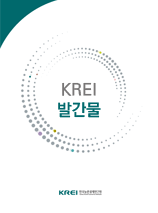
- 2016 Production Status and Market Prospect of Eco-Friendly Agricultural Products at Home and Abroad
-

-
○ The cultivation area of environmentally friendly agricultural products (organic and
non-pesticide) has declined since 2013, but is expected to grow again after 2016.
- As the requirements for certification of eco-friendly agricultural products were tightened due
to the credibility issues, the cultivation area of these products has reduced by an annual
average of 16.1% since 2013.
- However, it is expected to increase again after 2016 in case the 4th Five-Year Plan for the
Development of Environmentally Friendly Agriculture, aimed at improving the certification
system, expanding the distribution system, facilitating consumption and reinforcing the
production infrastructure, is implemented well as planned.
○ The market size of eco-friendly agricultural products has also reduced due to the decrease in
the number of certification cases. The market is estimated to be worth KRW 1.2718 trillion as
of 2015, an 18.8% decline from the previous year.
- The market of environment-friendly agricultural products shrank in 2015 because the
reduction in the area of farmland with eco-friendly certification led to the decrease in the
volume of shipment.
- Among various commodities in the market, fruits take up 8.0%, which is very little compared
to grains (42.8%) and vegetables (21.7%).
○ Thanks to the global trend of well-being, the size of the organic agri-food market has gradually
increased since 2000 mainly in advanced countries, including the US and European countries.
- As of 2014, organic agricultural products are produced in 43.66 million ha of farmland in
about 172 countries around the world, and the volume is on the steady increase.
- The scale of the global organic agri-food market rapidly grew from USD 15 billion in 1990
to USD 64 billion in 2012 (an increase by 4.3 times) and to USD 80 billion in 2014 (an
increase by 5.3 times).
○ The market for eco-friendly agricultural products is expected to grow again from 2016 with the
fostering policies of the government.
- The implementation of the 4th Five-Year Plan for the Development of Environmentally
Friendly Agriculture starting from 2016 is predicted to lead to a steady growth of the market
size, presumably reaching KRW 2.5242 trillion by 2020 and KRW 3.9862 trillion by 2025.
○ It is crucial to make efforts based on policies to facilitate the stable supply and consumption
of environment-friendly agricultural products.
- In the short term, for a smooth supply of eco-friendly fruits in response to the abolition of
the certification system for low-pesticide agricultural products, it is needed to come up with
measures for enhancing the direct payment system, introducing the insurance system for
producers, and designing and disseminating the cultivation manuals for organic fruits.
- In the medium and long term, it is necessary to expand the industrial foundation for
eco-friendly processed food and the domestic and overseas markets in relation to the food
service industry and export, thereby responding to the expansion of the market for
environment-friendly agricultural products. -
목차
요약문
○ The cultivation area of environmentally friendly agricultural products (organic and
non-pesticide) has declined since 2013, but is expected to grow again after 2016.
- As the requirements for certification of eco-friendly agricultural products were tightened due
to the credibility issues, the cultivation area of these products has reduced by an annual
average of 16.1% since 2013.
- However, it is expected to increase again after 2016 in case the 4th Five-Year Plan for the
Development of Environmentally Friendly Agriculture, aimed at improving the certification
system, expanding the distribution system, facilitating consumption and reinforcing the
production infrastructure, is implemented well as planned.
○ The market size of eco-friendly agricultural products has also reduced due to the decrease in
the number of certification cases. The market is estimated to be worth KRW 1.2718 trillion as
of 2015, an 18.8% decline from the previous year.
- The market of environment-friendly agricultural products shrank in 2015 because the
reduction in the area of farmland with eco-friendly certification led to the decrease in the
volume of shipment.
- Among various commodities in the market, fruits take up 8.0%, which is very little compared
to grains (42.8%) and vegetables (21.7%).
○ Thanks to the global trend of well-being, the size of the organic agri-food market has gradually
increased since 2000 mainly in advanced countries, including the US and European countries.
- As of 2014, organic agricultural products are produced in 43.66 million ha of farmland in
about 172 countries around the world, and the volume is on the steady increase.
- The scale of the global organic agri-food market rapidly grew from USD 15 billion in 1990
to USD 64 billion in 2012 (an increase by 4.3 times) and to USD 80 billion in 2014 (an
increase by 5.3 times).
○ The market for eco-friendly agricultural products is expected to grow again from 2016 with the
fostering policies of the government.
- The implementation of the 4th Five-Year Plan for the Development of Environmentally
Friendly Agriculture starting from 2016 is predicted to lead to a steady growth of the market
size, presumably reaching KRW 2.5242 trillion by 2020 and KRW 3.9862 trillion by 2025.
○ It is crucial to make efforts based on policies to facilitate the stable supply and consumption
of environment-friendly agricultural products.
- In the short term, for a smooth supply of eco-friendly fruits in response to the abolition of
the certification system for low-pesticide agricultural products, it is needed to come up with
measures for enhancing the direct payment system, introducing the insurance system for
producers, and designing and disseminating the cultivation manuals for organic fruits.
- In the medium and long term, it is necessary to expand the industrial foundation for
eco-friendly processed food and the domestic and overseas markets in relation to the food
service industry and export, thereby responding to the expansion of the market for
environment-friendly agricultural products.저자정보
저자에게 문의
구매안내
KREI의 출판물은 판매 대행사 (정부간행물판매센터)와 아래 서점에서 구입 하실 수 있습니다.
판매대행사
- (주)정부간행물판매센터http://www.gpcbooks.co.kr사이트 바로가기
- 서울특별시 중구태평로 1가 25번지
- TEL 02) 394-0337, 734-6818
- FAX 02) 394-0339
판매서점
판매서점 교보문고 http://www.kyobobook.co.kr/ 영풍문고 http://www.ypbooks.co.kr/ 알라딘 http://www.aladin.co.kr/ 활용도 정보
활용도 정보 상세정보 조회 좋아요 다운로드 스크랩 SNS공유 9341 0 17 0 0 -
- Suggestions to Promote the Hometown Love Donation System
- Gouk, Seungyong
- 2022.11.25
- KREI 이슈리포트
-
- Ten Years of Korea-U.S. FTA: focusing on agri-food trade
- Kim, Kyungphil
- 2022.06.09
- KREI 이슈리포트
-
- Impacts of Ukraine-Russia Conflict on Global Grain Prices
- Kim, Jongjin
- 2022.03.31
- KREI 이슈리포트
-
- The Impacts of the COVID-19 on the Korean Agricultural Market
- Seo, Hong-Seok
- 2020.06.05
- KREI 이슈리포트
-
- 10 Agricultural Policy Issues of Korea in 2019
- Jeong, Minkook
- 2019.01.29
- KREI 이슈리포트
-
- State of Korean and Overseas Markets for Environment-Friendly Agricultural Products and Challenges 2018
- Jeong, Hakkyun; Sung, Jaehoon; Lee, Hyeonjeong
- 2018.09.12
- KREI 이슈리포트
-
- Measures to Establish the Water-Energy-Food Nexus for Agricultural Resource Management
- Sung, Jaehoon; Cho, Wonju; Lee, Hyeonjeong
- 2018.09.05
- KREI 이슈리포트
-
- Changes in the Trade of Agricultural and Livestock Products and Implications after Seven Years from the Enforcement of the Korea-EU FTA
- Song, Woojin; Lee, Hyunkeun; Myeong, Suhwan; Yoo, Juyoung
- 2018.06.29
- KREI 이슈리포트
-
- 10 Agricultural Policy Issues of Korea in 2018
- Kim, Byoungryul
- 2018.01.22
- KREI 이슈리포트
-
- Income Changes by Type of Farm Household and Implications
- Woo, Byungjoon
- 2017.11.30
- KREI 이슈리포트
-
- 10 Agricultural Policy Issues of Korea in 2019
- Jeong, Minkook
- 2019.01.29
- KREI 이슈리포트
-
- Income Changes by Type of Farm Household and Implications
- Woo, Byungjoon
- 2017.11.30
- KREI 이슈리포트
-
- 10 Agricultural Policy Issues of Korea in 2018
- Kim, Byoungryul
- 2018.01.22
- KREI 이슈리포트
-
- Job Creation Potential for the Youth and Challenges in the Agricultural Industry
- Ma, Sangjin
- 2017.01.01
- KREI 이슈리포트
-
- Implementation Plan and Implications of International Development Cooperation Projects for Agriculture in 2017
- Heo, Jang
- 2017.04.28
- KREI 이슈리포트
-
- The Impacts of the COVID-19 on the Korean Agricultural Market
- Seo, Hong-Seok
- 2020.06.05
- KREI 이슈리포트
-
- Global Spread of Saemaul Undong for Rural Development in Developing Countries
- Heo, Jang; Lee, Yoonjung
- 2016.11.30
- KREI 이슈리포트
-
- Goals and Strategies to Reduce Greenhouse Gas Emissions in the Agriculture Sector
- Jeong, Hakkyun; Kim, Changgil
- 2015.11.03
- KREI 이슈리포트
-
- 70 Years' Achievements and New Challenges of Korean Agriculture and Rural Communities
- Song, Miryung; Moon, Hanpil; Kim, Meebok; Seong, Jooin; Lim, Jieun
- 2015.09.15
- KREI 이슈리포트
-
- Strategy for Creative Economy, and Vitality in Agriculture and Rural District
- Park, Joonki
- 2013.06.18
- KREI 이슈리포트
의견남기기


